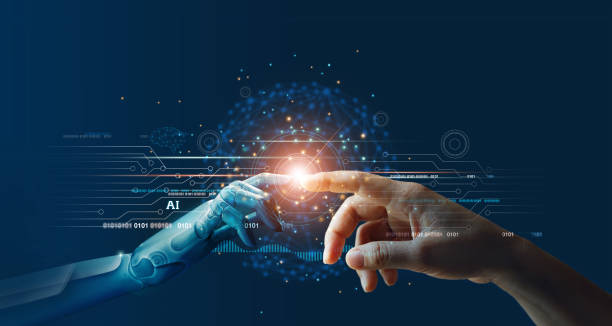With the rapid rise of Artificial Intelligence (AI), many industries are finding their place along with its transformative effects. Professionals, students, and business owners alike are adapting to new ways of working, learning, and interacting. While AI introduces incredible opportunities, it also raises questions about the future of established practices.
For the Glenn Family Foundation, the fields of education, psychology, and healthcare are central to fulfilling its mission of fostering thriving communities. As AI continues to reshape these areas, understanding its influence and preparing to adapt becomes more critical than ever.
What Exactly Is AI?
According to IBM (International Business Machines Corporation), Artificial Intelligence is “a technology that enables computers and machines to simulate human learning, comprehension, problem-solving, decision-making, creativity, and autonomy.”
In simpler terms, AI is software designed to help people find solutions tailored to their needs. Although the technology can feel intimidating, learning how to leverage AI can help individuals make it work for them, not against them. By embracing the potential of AI, industries can enhance efficiency, creativity, and problem-solving.
AI in Education
The integration of AI into education has sparked much debate, particularly about plagiarism and academic dishonesty. However, the same tools causing controversy can also serve as powerful aids for teachers and students alike.
AI provides a range of tools that make learning more efficient and interactive. For example, students can use AI tools to generate study schedules, practice prompts, or personalized feedback on their writing.
Instead of relying on AI to produce essays, they can use it as a coach to develop their skills. AI-driven platforms like Duolingo and Khan Academy create lessons for each student. This helps students learn subjects at their own speed.
Educators often face the challenge of juggling lesson planning, grading, and administrative duties. AI can help streamline these processes. AI can evaluate multiple-choice quizzes, essays, and even provide constructive feedback, saving teachers countless hours. Tools like AI-powered calendars and task managers ensure efficient scheduling and help educators focus on teaching.
AI in Psychology
The field of psychology has welcomed AI as a tool to improve mental health care. It helps solve accessibility issues and enhances therapy methods.
Chatbots provide on-demand support, helping individuals access advice, schedule therapy appointments, or learn coping strategies. These bots can guide users until they can connect with a licensed professional. AI analyzes patterns in mental health data to identify trends and offer targeted interventions. For instance, it can detect a rise in anxiety symptoms across a demographic and suggest community-based solutions.
AI-powered tools provide virtual therapy sessions and resources for people who may not have access to traditional services. These platforms monitor symptoms, track progress, and adjust treatment plans accordingly.
While the potential benefits are great, ethical considerations are vital. Questions about confidentiality, data privacy, and the human touch in therapy remain of the utmost importance. AI should complement, not replace, human therapists, ensuring that care remains compassionate and personal.
AI in Healthcare
Healthcare has seen a big impact from AI. It is changing how we diagnose and handle administrative tasks, and how care is provided.
AI excels at analyzing medical images, helping detect diseases such as cancer at earlier stages than human observation might allow. Early detection is critical in improving patient outcomes, especially for life-threatening conditions.
By analyzing biological data, AI predicts how compounds will interact with the human body, accelerating the path to new treatments. Because of this, the drug discovery process, traditionally expensive and time-consuming, benefits significantly from AI.
AI enables healthcare providers to create highly tailored treatment plans by examining patient data, including genetics, lifestyle, and medical history. This personalized approach leads to more effective care with fewer side effects.
Virtual health assistants powered by AI provide real-time health updates, monitor chronic conditions, and alert healthcare providers to potential issues. This enhances patient engagement and allows for timely interventions without requiring frequent in-person visits.
AI reduces the administrative burden by automating scheduling, billing, and medical record management. This allows healthcare professionals to dedicate more time to patient care, improving overall efficiency and satisfaction.
Final Thoughts
Artificial Intelligence is reshaping the landscape of education, psychology, and healthcare in transformative ways. By enhancing efficiency, personalizing services, and enabling innovative solutions, AI has the potential to improve lives on a global scale.
For the Glenn Family Foundation, embracing these advancements aligns with its mission to empower communities through education, mental health support, and healthcare access. As these technologies continue to evolve, staying informed and adapting to change will be key to ensuring AI serves as a tool for progress rather than disruption.
In this era of rapid technological innovation, the most important takeaway is this: AI is not here to replace humanity but to enhance it. By learning to use AI effectively, individuals and organizations can unlock their potential while staying true to the values that matter most.

